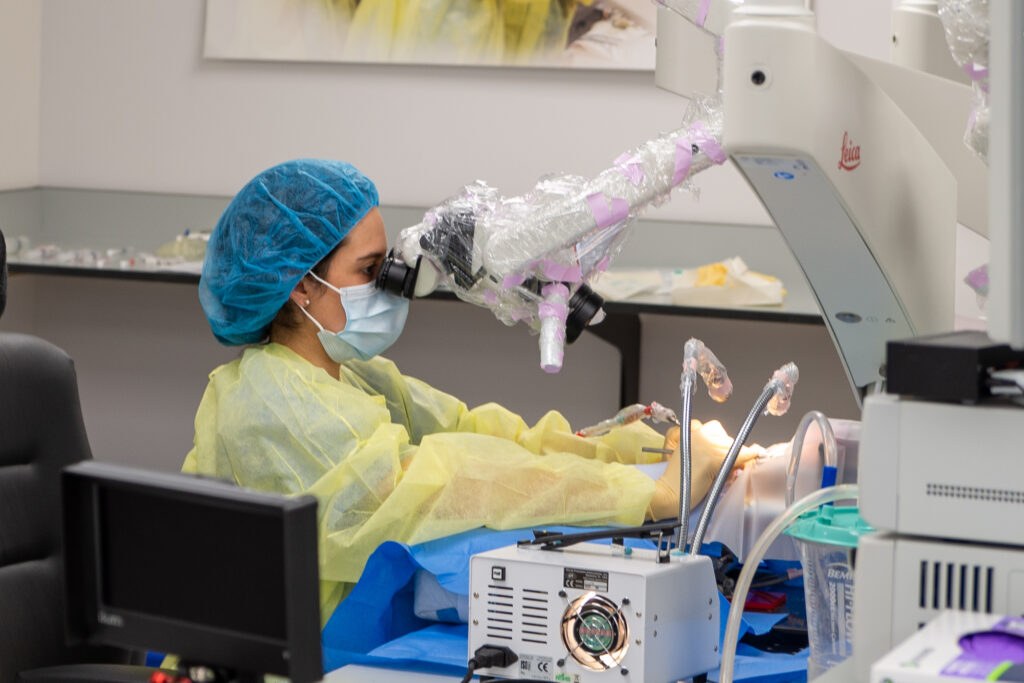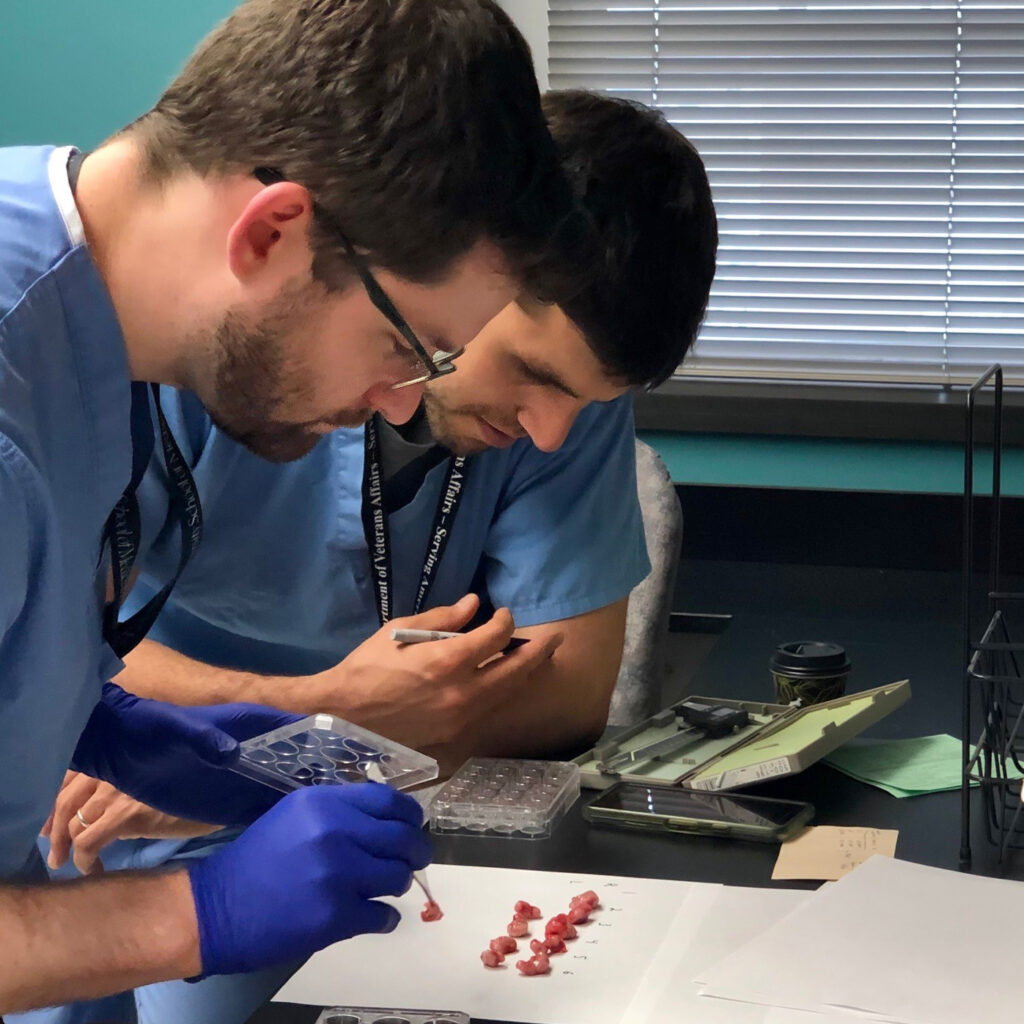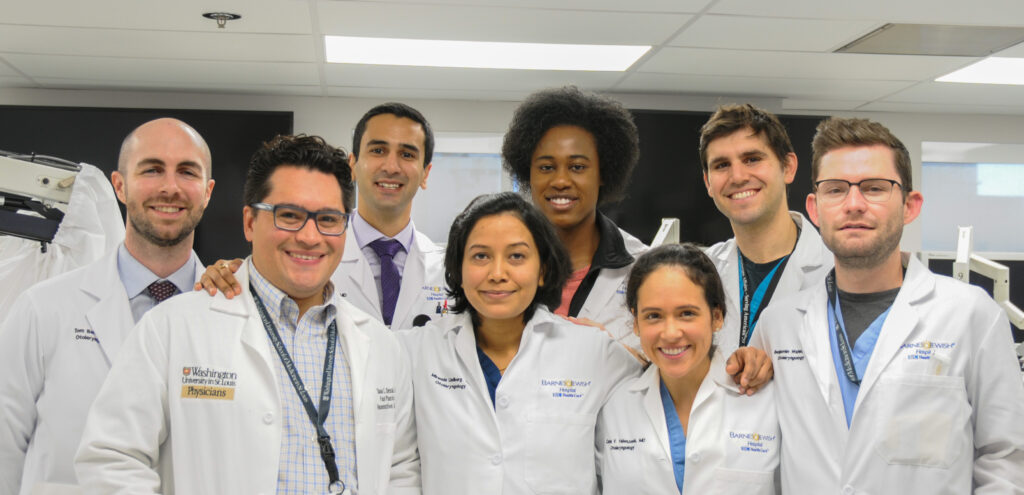Two of the five otolaryngology residents who match each year at Washington University are selected into an NIH-funded physician-scientist training program. As they launch into what is called the T32 Physician-Scientist Training Program, choosing a mentor is perhaps the most important decision they make.
Although a trainee advisory panel assists each resident in choosing a mentor and research project, that decision is largely determined by the trainees’ interests and the opportunities available. Current resident trainees agree their first step was identifying a clinical specialty within the field of otolaryngology that interested them.

For residents David Lee, MD, and Amit Walia, MD, that choice was otology – ear and hearing.
“I reached out to our chairman Dr. Buchman for advice on what was active within the department,” said Dr. Lee. “I also talked to mentors in other fields as well as current/previous trainees to gain their perspective. I met with about half a dozen investigators before deciding to work with Dr. [Lavinia] Sheets.”
Dr. Walia followed the same procedure and has now been working with Mark Rutherford, PhD, for the past year. Lee and Walia shared that fit with a mentor was indeed an important part of their decision.
Several current trainees showed interest in studying head and neck cancer, a strong clinical specialty at Washington University. The type of research and techniques used in the lab were important was important to them.

“I wanted to gain experience in all aspects of clinical and translational research, as well as basic science,” said resident Ricardo Ramirez, MD. “The breadth of research done in the Zevallos lab made my decision easy.”
Current trainee Ben Wahle, MD, also chose to work in the Zevallos lab, but for different reasons – he developed a strong clinical interest in head and neck squamous cell carcinoma (HSNCC) early in residency.
“While we have made progress in HSNCC treatment, I saw there were still many unmet clinical needs,” he said. “I always enjoyed working with Dr. Zevallos, and since I had two full years, I wanted to use that time to develop a new skill. In the Zevallos lab I’ve been able to learn about using various genomics approaches to studying tumor samples.”
Tom Barrett, MD, chose to study head and neck cancer with Sid Puram, MD, PhD, after having some research experience in his lab as a medical student.
“I already knew he [Puram] would be a fantastic mentor who would always push me to reach my full potential,” said Dr. Barrett. “And, I think he is doing some of the most exciting research in head and neck oncology.”
Regardless of their specific reasons, residents said the selection process should not be rushed. When asked what advice they would give to future trainees, they all agreed: “Start the process early!”
